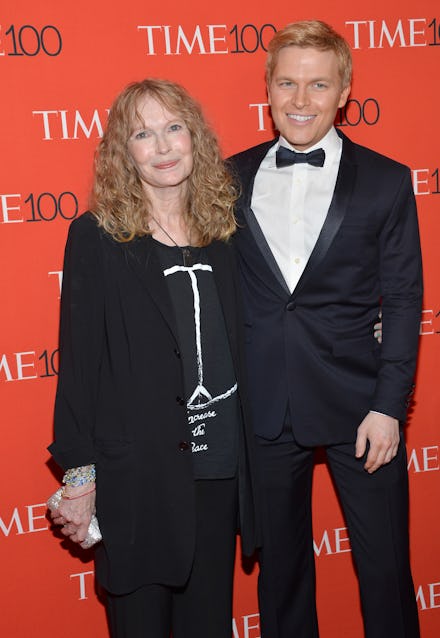Ronan Farrow, Son of Woody Allen, Nails the Double Standard in Sexual Assault Allegations

There's a reason 68% of sexual assaults go unreported — perpetrators almost never answer for their crimes, and instead of justice, victims often get skepticism, scrutiny and abuse for coming forward.
Take Dylan Farrow's 2014 allegations of molestation against her father, famed director Woody Allen. As her brother, Ronan Farrow, wrote in a Hollywood Reporter column published Wednesday, the media largely refused to touch the story. It was "too hot," they said, and Allen too powerful. According to Farrow, it's selective blindness like this that "has helped to create a culture of impunity and silence" that protects men like his father and Bill Cosby.
"Very often, women with allegations do not or cannot bring charges," Farrow wrote. "Very often, those who do come forward pay dearly, facing off against a justice system and a culture designed to take them to pieces."
Dylan's account of the abuse she'd suffered at Allen's hand came in fewer than 1,000 words on the New York Times' Opinion pages, aggressively hedged with "careful caveats" not applied to her father's subsequent response.
"It was a stark reminder of how differently our press treats vulnerable accusers and powerful men who stand accused," Farrow wrote.
That difference of treatment, according to Farrow, is the reason his mother, Mia Farrow, did not pursue charges against Allen in the first place, despite the prosecutor's solid case. The toll taken on Dylan, then a child, would've been too great.
"My mother's decision to place Dylan's well-being above all else became a means for Woody Allen to smear them both," Farrow wrote.
But wielding threat of retribution as a silencer, he continued, is "dangerous. ... It sends a message to victims that it's not worth the anguish of coming forward. It sends a message about who we are as a society, what we'll overlook, who we'll ignore, who matters and who doesn't."
"There is more work to do to build a culture where women like my sister are no longer treated as if they are invisible," Farrow concluded. "It's time to ask some hard questions."
Read more: Ask This Student How Her College Is Protecting Her Rapist